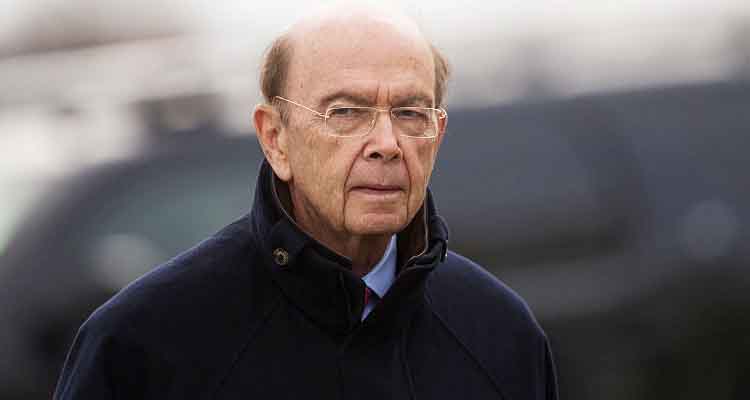
Courtesy of Wikimedia Commons
The U.S. Senate voted 72–27 to confirm Wilbur Ross ’59 as the secretary of commerce Monday night.
A billionaire banker from Florida and an economic adviser to Trump’s campaign, Ross spent more than two decades with Rothschild Inc., advising clients on how to restructure their enterprises after bankruptcy, and earning himself the title “king of bankruptcy.” Ross is also known for investing in bankrupt companies in the steel, coal and textile industries, only to sell them for lucrative profit after improving their business operations. According to Forbes magazine, he has a net worth of $2.9 billion, placing him among the world’s richest people.
Trump announced Ross’s nomination as commerce secretary on Nov. 30. On that same day, Trump announced former Goldman Sachs executive Steven Mnuchin ’85 as his nominee for secretary of the treasury. Mnuchin was successfully confirmed by the Senate two weeks ago.
Since graduating from Yale, where he wrote for a literary magazine and worked at the radio station, Ross has remained involved with the University. In addition to serving on the Yale University Council and the board of the Yale University Art Gallery, he has pledged $10 million to the School of Management and has served on its Board of Advisors since 2004.
Unlike Secretary of Education Betsy DeVos and former nominee for secretary of labor Andrew Puzder, Ross entered Trump’s cabinet relatively unscathed, as he was not subjected to intense public scrutiny and opposition.
In a January News poll of 743 undergraduates, only 8.28 percent of respondents said they viewed Ross “favorably” or “very favorably” while 31.66 percent of the respondents said they did not know enough about Ross to have an opinion.
Faculty members, similarly, expressed mixed views on the same issue. In an earlier interview with the News, lecturer in International Studies and resident diplomat Charles Hill said Ross’ experience with boosting failed businesses shows an ability that speaks to strong leadership in times of uncertainty.
Other faculty members, however, were critical of Ross’s track record. Sociology professor Jeffrey Alexander, among others, posited that as a billionaire, Ross might exacerbate America’s wealth gap by resorting to lowering tax rates for the wealthy.
Among the promises Ross made was his pledge to revisit the terms of the North American Free Trade Agreement, which coincides with Trump’s presidential campaign platform and his vested interest in prioritizing job creation and invigorating the national economy. In Ross’ Senate confirmation hearing last month, he did not shy away from the prospect of making sweeping changes to NAFTA, an accord between the U.S., Canada and Mexico that strives to eliminate trade and investment barriers such as export tariffs.
“As to Canada and Mexico, the president-elect has made no secret in his public remarks, nor have I, that NAFTA is logically the first thing for us to deal with,” Ross said in his January hearing. “We ought to solidify relationships the best way we can in our own territory before we go off into other jurisdictions.”
NAFTA was a frequent target of criticism and ridicule during Trump’s campaign last year. He claimed that the trade agreement benefited the Canadian and Mexican economy at the expense of American jobs.
Among the 23 cabinet positions that require a Senate confirmation in President Donald Trump’s administration, Ross is the 15th candidate to be confirmed by a full Senate vote.
Tony Wong contributed reporting.







